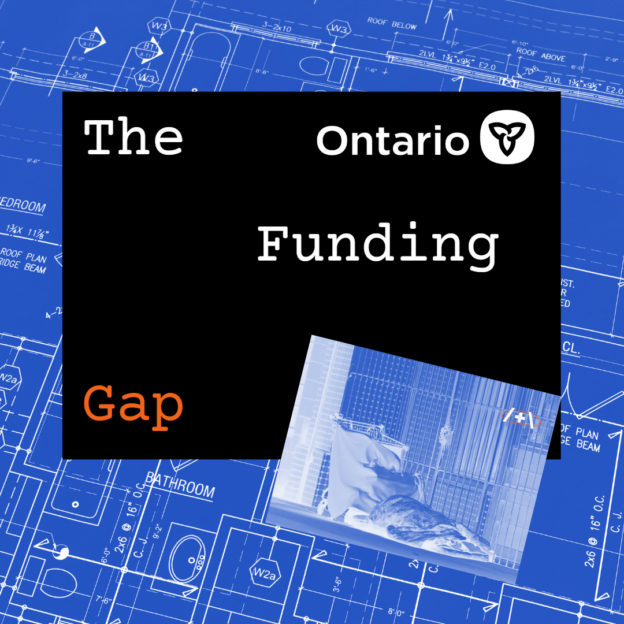Despite no affordable housing, the shelter continues to place vulnerable community members into homes.
Ottawa, ON – Today the Ottawa Mission released its annual impact report outlining its support of increasing numbers of vulnerable community members over its past fiscal year.
“Fortunately, as COVID-19 declined in our community, in November 2022, we expanded services that had been scaled back during the pandemic. It has been heartening to welcome community clients back into our shelter for meals, educational, employment and housing support, addiction and trauma counselling, and other services they rely upon,” noted Ottawa Mission CEO Peter Tilley.
“Having said this, our community faces many very serious challenges in a post-pandemic environment such as increases in mental health distress and substance use coupled with inflation, the ongoing housing emergency, the poisoning of the street drug supply and a rise in overdoses,” Tilley added.
But the most severe change has been the shocking increase in hunger across Ottawa. “Prior to the pandemic, we served 495,360 meals annually. This past year, we served an astounding 1,057,489 meals. That means that we served more than one meal for every person in Ottawa this past year,” noted Chef Ric Allen-Watson, the Mission’s Director of Food Services.
In response to worsening hunger across our community, The Mission launched its food truck program in September 2020. Beginning with one truck and five stops, it served 500 meals per week. Since that time, it has expanded to two trucks and 35 stops serving over 7,000 meals per week. The Mission also operates a grocery program through the food truck program, providing a small bag of groceries to each client who receives a meal. This past fiscal year, the shelter handed out 51,161 bags of groceries.
“Many clients have told us that they go hungry until our trucks come. Other clients have told us that our food truck helps them with feeding their families since the cost of groceries has risen so much,” added Allen-Watson. A 2021 survey showed that 34% of food truck program clients are families with children.
Despite the duration and severity of pandemic restrictions coupled with the continuing lack of affordable housing in Ottawa, from May 2019 to April 2023, The Mission placed 424 clients into housing. “This is remarkable since the Canada Mortgage and Housing Corporation has confirmed that there are almost no affordable private rental units for low income households in Ottawa: average rents for one-bedroom apartments have risen 15.3% since last year and are now $2,146 per month. In fact, 10% of people living in shelters are employed, but cannot afford these rents,” noted Kristen Schilkie, Manager of Housing. In 2020, Ottawa City Council declared a homelessness emergency. While the number of people living in shelters declined in 2020 and 2021, it rose again in 2022 and remains higher than it was 10 years ago.
Among the many housing services provided by the shelter, The Mission has a unique city-funded position that provides support to veterans who are homeless or at risk of homelessness. “Veterans are among several unique populations who are at greater risk of homelessness due to PTSD and other factors,” Schilkie added. “Last year, we provided 20 veterans case management support at the shelter and six were successfully housed.”
Despite the restrictions imposed by the pandemic over the past year, the shelter continued to support increasing numbers of vulnerable community members who have turned to it for help. In addition to its meal and housing programs, support has included:
- Providing emergency shelter to 1,830 unique individuals.
- Providing 83 clients with employment referrals.
- Providing 121 clients with mental health referrals.
- Helping 123 clients achieve their educational goals.
- Training 42 Food Service Training Program graduates, 37 of whom found employment in the industry.
- Supporting 59 Addiction and Trauma Services graduates on their journey to wellness and recovery and reducing their risk of relapse.
- Provided compassionate and evidence-based care through 14,739 primary care patient consults, 37 new Hospice admissions, and 593 dental care patient visits.
- Bringing comfort and solace to clients through our Chaplaincy services.
“Like hospital emergency rooms, emergency shelters are the entry point for many people within the homelessness continuum of care. At The Mission, we’re proud to provide the care vulnerable people need to keep them safe and rebuild their lives. Given the severe challenges faced by increasing numbers of vulnerable people in our community, we continue to be their first point of refuge for the next several years. We’re very fortunate to continue to have exceptional support from our very generous donors and supporters. Given the continuing need to support so many vulnerable community members, we call on all levels of government to increase their funding for affordable housing, food insecurity, and treatment for mental health and substance use,” Tilley concluded.
About The Ottawa Mission
Since 1906, The Ottawa Mission has been serving the homeless, the hungry and the lost by providing food, clothing, shelter and skills. In 2022-2023, The Ottawa Mission provided emergency shelter to an average of 177 men every night and served an average of 2,898 meals every day. The Ottawa Mission also provides to men and women health services, mental health and addiction treatment programs, hospice care, dental services, housing services, educational support, job training, spiritual care, and clothing to thousands in need in our community. In September 2020, The Ottawa Mission marked the one millionth hour that the shelter has been in existence since its founding in 1906. In 2019, the Mission became a housing-focused shelter reflective of its commitment to a home for everyone as a human right with the launch of a new housing department.
FOR INFORMATION, PLEASE CONTACT:
Aileen Leo
Director of Communications
T 613.234.1144 x 305
E-mail: aleo@ottawamission.com



